Science Panel for the Congo Basin
The Science Panel for the Congo Basin (SPCB) was launched on 3rd December 2023, at COP28 in Dubai. The SPCB is an independent platform for scientists from the region to synthesize the existing knowledge including Indigenous peoples and autochthonous knowledge, on the functioning of, and threats to, the Congo Basin and its ecosystems. More information about the Panel is detailed in the below press release.
News
Press release for the launch of the Science Panel
First-of-Its-Kind Science Panel for the Congo Basin Debuts at COP28
The new independent panel will convene leading scientists and researchers from and across the region to assess the state of the Congo Basin and identify priorities for policy action
DUBAI, United Arab Emirates, 3 December, 2023 – Today at COP28 in Dubai, the Science Panel for the Congo Basin (SPCB) was launched as an independent platform for scientists from the region to synthesize the existing knowledge including Indigenous peoples and autochthonous knowledge, on the functioning of, and threats to, the Congo Basin and its ecosystems. Led by and comprised of scientists from across the region, the panel will also involve the support from leading international scientists engaged in research in the Basin. The Panel will provide an independent assessment of the Congo Basin by examining key questions related to its ecosystems, current impacts, and future threats from local, regional, and global human activity.
The Congo River Basin and its contiguous forests are the world’s second-largest tropical forest, comprising an area of 240 million hectares and providing key ecosystem services at local, regional, and global scales. Despite its critical importance to the region and its value in combating climate change, scientific institutions and research on the Congo Basin have been plagued by chronic underinvestment, reflected also in the limited engagement of local scientists in policy making. These challenges underscore the urgency and demand for locally-led holistic, transparent, and systematic scientific research on key dimensions of the state of the Basin’s ecosystems; on the implications of science-based policies for the long-term well-being of the region and the planet at large; and on the important opportunities for the conservation of nature and the long term sustainable development of the region’s people and communities.
The Science Panel for the Congo Basin is led by three esteemed scientists from the region, to serve as its inaugural Co-Chairs:
- Raphaël M. Tshimanga, Professor at the University of Kinshasa (DRC);
- Lydie-Stella Koutika, Researcher at the Centre de Recherche sur la Durabilité et la Productivité des Plantations Industriales (Republic of Congo); and
- Bonaventure Sonké, Professor at the University of Yaoundé (Cameroon).
The SPCB is inspired by the Science Panel for the Amazon, and aims to generate a multidisciplinary synthesis of the existing scientific knowledge on the Congo Basin, drawing from relevant social sciences, as well as Indigenous and autochthonous knowledge. On the basis of this synthesis, the panel will further identify existing knowledge gaps, critical threats and potential tipping points that require policy attention and investments.
The SPCB will promote collaboration between the scientific community, Indigenous researchers, and knowledge systems, as well as institutional coordination and information exchange among key stakeholders and policymakers. It will pursue an inclusive approach in its engagement of a wide range of scientists and partners to deliver a high-quality internationally peer-reviewed assessment, a first-of-its-kind report by the end of 2025, to be presented at COP30.
The SPCB is convened by the UN Sustainable Development Solutions Network (SDSN) and will work closely with the Congo Basin Science Initiative, its sister initiative launched at the Three Basin Summit in Brazzaville in October 2023.
For more information on the Science Panel, visit https://spcongobasin.org/.
Media Contacts:
Alyson Marks
Head of Communications & External Relations, SDSN (English-speaking)
[email protected]
Harmonie Kobanghe
Science Panel for the Congo Basin (French-speaking)
[email protected]
Press Release: Professor Lee White Appointed as Special Envoy to the Science Panel for the Congo Basin
Professor Lee White Appointed as Special Envoy to the Science Panel for the Congo Basin
KINSHASA, Democratic Republic of the Congo, July 30, 2024 - The Science Panel for the Congo Basin (SPCB) is pleased to announce the appointment of Professor Lee White as its Special Envoy. Professor White brings four decades of unparalleled expertise in tropical rainforest ecology and conservation to the Panel.
"I am intensely proud to have been asked by the co-chairs of the SPCB, Professor Raphaël Tshimanga, Dr. Lydie-Stella Koutika, and Professor Bonaventure Sonké, along with the many committee members, to be their spokesperson,” remarked Professor White. “I am going to be springing up at international meetings to call for more focus, more attention, more partnerships, more support, and more finance for science and scientists in the Congo Basin. I will approach this mission with the fervor of someone who is convinced that the Earth as we know it will end if we lose the rainforests."
As Special Envoy, Professor White will work closely with the Panel to advise on strategy, outreach, and engagement; support outreach to relevant public sector and international organization initiatives; develop strategic partnerships; and represent the SPCB at scientific conferences and international conferences on biodiversity and climate change.
Professor White, an Honorary Professor at the University of Stirling, has conducted extensive research on tropical rainforest ecology and conservation across equatorial Africa for over 40 years. His experience spans both scientific research and high-level policy-making, making him an ideal candidate to advance the SPCB's goals of conservation and sustainable development in the Congo Basin region.
Professor White's impactful career includes serving as Gabon's Minister of Water, Forests, Sea, Environment, Climate Change, and Land-use planning from 2019 – 2023. During his tenure, he doubled Gabon's forest economy and oversaw the validation of 187 million tons of REDD+ results with the UNFCCC. His prior roles include leading Gabon's National Parks Agency and serving as a Senior Scientist in Gabon's UNFCCC climate change negotiating team.
Throughout his career, Professor White has been instrumental in creating 53 new protected areas and has worked across the African rainforest zone in multiple countries. He has authored 120 international peer-reviewed journal articles and seven books, solidifying his position as a leading voice in rainforest conservation and sustainable development.
"We are thrilled to welcome Professor White to the Science Panel for the Congo Basin," said Emma Torres, Coordinator of the SPCB. "His profound understanding of tropical forest ecology, conservation, and climate change, combined with his experience in policy-making, will be invaluable as we work towards sustainable and equitable development in the region."
About the Science Panel for the Congo Basin (SPCB)
The Science Panel for the Congo Basin (SPCB) is the first-of-its kind independent scientific panel dedicated to synthesizing existing knowledge of the status of and threats to the Congo Basin and its ecosystems. As the world’s second-largest tropical forest, the Congo Basin provides key services at local, regional, and global scales that are critical for limiting the impacts of climate change - and yet, it remains largely under-researched and chronically underinvested. The SPCB was established to mobilize scientists in the region to jointly address these challenges, inspired by the call of environment ministers and scientists across the region for renewed efforts, increased scientific investment, and involvement of science in policy-making for the sustainable development of Congo Basin countries.
Led by leading scientists from the region, the SPCB will undertake a comprehensive synthesis of the available scientific knowledge on the Congo Basin, including Indigenous peoples and autochthonous knowledge, to generate a high-quality independent assessment report to be presented at COP30. The assessment will be directed at policy-makers to help inform and accelerate local and regional solutions to strengthen nature conservation and advance sustainable development, while also highlighting acute and potential tipping points, as well as critical areas and gaps requiring further scientific research. The panel is inspired by the successful Science Panel for the Amazon, convened by the UN Sustainable Development Solutions Network (SDSN). For more information about the Science Panel for the Congo Basin, please visit www.spcongobasin.org.
Media Contact
Lila Potter
Program Associate, SDSN and SPCB
[email protected]
917 841 7082
About the Science Panel for the Congo Basin
The Science Panel for the Congo Basin (SPCB) is the first-of-its kind independent scientific panel dedicated to synthesizing existing knowledge of the status of, and threats to, the Congo Basin and its ecosystems. As the world’s second largest tropical forest, the Congo Basin is providing key services at local, regional, and global scales that are critical for limiting the impacts of climate change - and yet remains largely under-researched and chronically underinvested.
The SPCB was established to mobilize scientists in the region to jointly address these challenges, inspired by the call of environment ministers and scientists across the region for renewed efforts, increased scientific investment, and involvement of science in policy making for the sustainable development of Congo Basin countries. Led by and comprised primarily of leading scientists from the region, the SPCB will undertake a comprehensive synthesis of the available scientific knowledge on the Congo Basin, including Indigenous peoples and autochthonous knowledge, to generate a high-quality independent assessment report to be presented at COP30.
The assessment will be directed at policy makers to help inform and accelerate local and regional solutions to strengthen nature conservation and advance sustainable development, while also highlighting acute and potential tipping points, as well as critical areas and gaps requiring further scientific research.
The panel is inspired by the successful Science Panel for the Amazon, convened by the UN Sustainable Development Solutions Network (SDSN).
Earlier meetings with scientists in the region
Earlier in 2023, scientists from across the central African region met near Libreville, Gabon, for two days to discuss the needs, priorities and mechanisms needed to strengthen science in and of the Congo Basin. The participants came from across different countries and disciplines, and were joined by partners and fellow scientists from the Amazon, Europe and the US to jointly explore approaches to strengthen regional science, scientists and science institutions for a greater role in political decision making of national, regional and global relevance. The workshop also marked the start of consultations and preparations toward the establishment of the Science Panel.
The Panel
The Science Panel for the Congo Basin will be led by three esteemed scientists from the region, to serve as inaugural Co-Chairs:
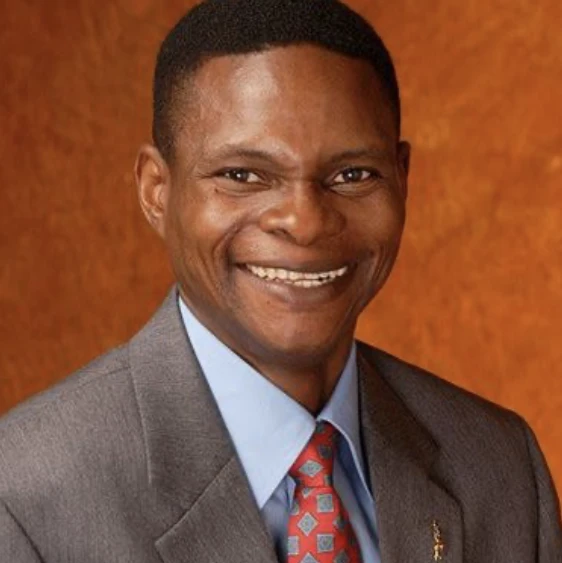
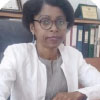
Lydie-Stella Koutika is a soil scientist and Director for the Research Centre on Productivity and Sustainability of Industrial Plantations (CRDPI) at Pointe- Noire, Republic of the Congo. She is an expert in land degradation processes, and researches solutions for the region’s food insecurity, as well as effective mitigation and adaptation to climate change. Dr Koutika also studies forest biodiversity conservation.
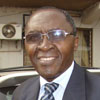
Bonaventure Sonké is a Professor and Head of the Department of Biology at the Higher Teachers’ Training College at the University of Yaoundé I, Cameroon. He is involved in project collaborations with many institutions: he is also a research associate of the Missouri Botanical Garden (USA), the University of Liège, and the Free University of Bruxelles in Belgium. His research primarily focuses on the biodiversity in African rainforests.
Committee Members
- Lydie-Stella Koutika (ROC)
- Bonaventure Sonke (CAM)
- Raphael Tshimanga (DRC)
- Denis Sonwa (CAM)
- Maximiliano Fero (EQA)
- Cyriaque-Rufin Nguimalet (CAR)
- Jean-Jacques Braun (GAB)
- Bila-Isia Inogwabini (DRC)
- Simon Lewis (Ext, UK)
- Alfred Ngomanda (GAB)
- Wilfried Pokam (CAM)
- Florence Palla (CAM)
- Guy Moukandi (ROC)
- Suspense Ifo (ROC)
- Kate Abernethy (Ext, UK)
- Yadvinder Malhi (Ext, UK)
- Danae Maniatis (Ext, ITA)
- Lucie Temgoua (CAM)
- Judicael Lebamba (GAB)
- Jean Semeki Ngabinzeke (DRC)
- Georges-Noel Longandjo (DRC)
- Marie Sigaud (Ext, FR)
- Nathalie Van Vliet (Ext, COL)
- Jean-Louis Doucet (Ext, BEL)
- Corneille Ewango (DRC)
The Science Panel is convened under the auspices of the Sustainable Development Solutions Network (SDSN) and Dr Jeffrey Sachs, the President of SDSN. Ms. Emma Torres, Vice-President at the SDSN, is supporting the Panel as the Strategic Coordinator.
2025 Congo Basin Assessment Report
The Science Panel for the Congo Basin released the Executive Summary of the Assessment Report 2025 at COP30. The first comprehensive assessment of the geological, ecological, and socio-economic processes that have shaped the Congo Basin we see today, one of the most significant and biodiverse forest ecosystems on the planet. If preserved and exploited sustainably, the Basin represents a critical Nature-Based Solution for sustainable development, conservation, and climate resilience in Africa.
Highlighted Maps
Special Envoy
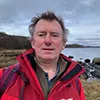
I am a joint British and Gabonese National. I was brought up in UK, Uganda and Sierra Leone and have lived most of my life in tropical Africa. In a 40-year career in Natural Resource Conservation and Management in Equatorial Africa I have worked in Gabon, Sierra Leone, Nigeria, Cameroon, Central African Republic, Republic of Congo, Democratic Republic of Congo, Uganda and Rwanda. During this time I served for 15 years as country director in Gabon and for a time as Central Africa Director for the international conservation NGO, Wildlife Conservation Society, WCS; Directed Gabon’s National Parks Agency, ANPN, for 10 years; and served for over 4 years as the Water, Forests, Sea and Environment Minister in the Gabonese Government from June 2019 onwards.
During my time at WCS, ANPN and the Ministry I participated in the creation of 53 new protected areas, including Gabon’s network of 13 national parks in 2002 and its 20 marine protected areas in 2017. I raised and managed over half a billion US$ of donor funding for conservation and forest management; lead the process to register 187 million tons of REDD+ results with the UNFCCC and structured a REDD+ results-based payment worth up to $150 million with the Norwegian Government, as part of the Central African Forest Initiative; helped to structure a debt restructuring Blue Bond for $500 million, designed to generate $163 million for marine conservation; and spoke on behalf of Africa at UNFCCC COP26 in Glasgow.
I have authored / co-authored 120 scientific papers published in peer reviewed journals, written and / or edited 16 books and 30 book chapters and have 16,798 citations and an h-index of 62 on Google Scholar. I was awarded a CBE by Her Majesty Queen Elizabeth II in 2010, for services to conservation in Central Africa and was made a ‘Chevalier' (2003) and then ‘Officier’ (2022) in Gabon’s National Order of Merit.
The Secretariat

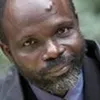



For any questions or to express your interest in getting involved with the Science Panel for the Congo Basin, please email [email protected].
Le panel scientifique pour le bassin du Congo (SPCB) a été lancé le 3 décembre 2023 lors de la COP28 à Dubaï. Le SPCB est une initiative inédite dédiée à la synthétisation des connaissances existantes sur le fonctionnement du système du bassin du Congo, et les menaces pesant sur lui. Pour plus d'informations, veuillez vous référer au communiqué de presse ci-dessous.
Nouvelles
Communiqué de presse pour le lancement du Panel scientifique
Le premier panel scientifique en son genre pour le bassin du Congo fait ses débuts à la COP28
Le nouveau groupe indépendant réunira d'éminents scientifiques et chercheurs de la région en vue d’évaluer l'état du bassin du Congo et d’identifier les priorités en matière d'action politique.
DUBAÏ, Émirats arabes unis, 3 décembre 2023 – Aujourd'hui, lors de la COP28 à Dubaï, le Groupe scientifique pour le bassin du Congo (SPCB) a été lancé en tant que plateforme indépendante permettant aux scientifiques de la région de synthétiser les connaissances existantes, y compris celles des peuples autochtones, sur le fonctionnement et les menaces qui pèsent sur le bassin du Congo et ses écosystèmes. Dirigé par et composé de scientifiques de toute la région, le panel bénéficiera également du soutien d'éminents scientifiques internationaux engagés dans la recherche dans le bassin. Le Groupe fournira une évaluation indépendante du bassin du Congo en examinant les questions clés liées à ses écosystèmes, aux impacts actuels et aux menaces futures liées à l'activité humaine locale, régionale et mondiale.
Le bassin du fleuve Congo et ses forêts contiguës constituent la deuxième plus grande forêt tropicale du monde, couvrant une superficie de 240 millions d'hectares et fournissant des services écosystémiques clés à l’échelles locale, régionale et mondiale. Malgré leur importance cruciale pour la région et leur valeur dans la lutte contre le changement climatique, les institutions scientifiques et la recherche sur le bassin du Congo ont souffert d’un sous-investissement chronique, qui se reflète également dans l'engagement limité des scientifiques locaux dans l'élaboration des politiques. Ces défis soulignent l'urgence et la demande d'une recherche scientifique holistique, transparente et systématique menée au niveau local sur les dimensions clés de l'état des écosystèmes du bassin ; sur les implications des politiques basées sur la science pour le bien-être à long terme de la région et de la planète dans son ensemble ; et sur l’importance de la recherche scientifique pour la conservation de la nature et le développement durable à long terme des populations et des communautés de la région.
Le Panel scientifique pour le bassin du Congo est dirigé par trois scientifiques estimés de la région, qui en seront les premiers coprésidents:
- Raphaël M. Tshimanga, Professeur à l'Université de Kinshasa (RDC);
- Lydie-Stella Koutika, Chercheuse au Centre de Recherche sur la Durabilité et la Productivité des Plantations Industrielles (République du Congo); et
- Bonaventure Sonké , Professeur à l'Université de Yaoundé (Cameroun).
Le SPCB s'inspire du Panel scientifique pour l'Amazonie et vise à générer une synthèse multidisciplinaire des connaissances scientifiques existantes sur le bassin du Congo, en s'appuyant sur les sciences sociales pertinentes, ainsi que sur les connaissances autochtones et indigènes. Sur la base de cette synthèse, le panel identifiera davantage les lacunes existantes en matière de connaissances, les menaces critiques et les points de bascule potentiels qui requièrent une attention politique et des investissements.
Le SPCB encouragera la collaboration entre la communauté scientifique, les chercheurs autochtones et les systèmes de connaissances, ainsi que la coordination institutionnelle et l'échange d'informations entre les principales parties prenantes et les décideurs politiques. Il adoptera une approche inclusive en faisant appel à un large éventail de scientifiques et de partenaires pour produire, d’ici fin 2025, une évaluation internationale de haute qualité évaluée par des pairs au niveau international, un rapport unique en son genre, qui sera présenté à la COP30.
Le SPCB est convoqué par le Réseau de solutions de développement durable des Nations Unies (SDSN) et travaillera en étroite collaboration avec l'Initiative scientifique du Bassin du Congo, son initiative sœur lancée lors du Sommet des Trois Bassins à Brazzaville en octobre 2023.
Pour plus d'informations sur le panel scientifique, veuillez visiter https://spcongobasin.org/.
Contacts médias:
Alyson Marks
Responsable de la communication et des relations extérieures, SDSN (anglophone)
[email protected]
Harmonie Kobanghe
Panel scientifique pour le bassin du Congo (francophone)
[email protected]
À propos du Panel Scientifique pour le Bassin du Congo
Le Panel Scientifique pour le Bassin du Congo (SPCB) est une initiative inédite dédiée à la synthétisation des connaissances existantes sur le fonctionnement du système du bassin du Congo, et les menaces pesant sur lui.
Malgré le fait que le bassin du Congo est la plus grande forêt tropicale du monde, fournissant des services essentiels à des échelles locale, régionale et mondiale, et jouant un rôle crucial dans la limitation des impacts du changement climatique, il reste largement sous-étudié et subit un sous-investissement chronique. Le SPCB a été lancé lors de la COP28 pour relever ce défi, inspiré par l'appel des ministres de l'environnement et des scientifiques de la région pour un plus grand investissement dans la science et pour accroître le rôle et la capacité de la science dans le bassin.
Dirigé par des chercheurs éminents de la région, le SPCB vise à entreprendre une synthèse complète des connaissances scientifiques disponibles sur le Bassin du Congo, y compris les connaissances des peuples autochtones, afin de produire un rapport d'évaluation indépendant de haute qualité qui sera présenté lors de la COP30. Ce rapport vise à informer et à accélérer les solutions locales et régionales pour la conservation et à promouvoir le développement durable, tout en mettant en évidence les points de basculement, les zones critiques et les lacunes nécessitant plus de recherches scientifiques. Le panel s'inspire du succès du Panel Scientifique pour l'Amazonie et est convoqué par le Réseau des Solutions pour le Développement Durable des Nations Unies (SDSN).
Rencontres avec des scientifiques de la région en début 2023
En début de 2023, des scientifiques de toute la région de l'Afrique centrale se sont réunis près de Libreville, au Gabon, pendant deux jours pour discuter des besoins, des priorités et des mécanismes nécessaires pour renforcer la science dans le bassin du Congo. Les participants venaient de différents pays et disciplines et, en collaboration avec des partenaires et des scientifiques venant d'Amazonie, d'Europe et des États-Unis, ont commencé à explorer des approches pour renforcer la science régionale et soutenir les scientifiques et les institutions scientifiques en vue d’augmenter le rôle de la science dans la prise de décision politique aux niveaux nationale, régionale et mondiale. L'atelier a également marqué le début des consultations et des préparations en vue de la création du Panel.
Le panel
Le Panel Scientifique pour le Bassin du Congo sera dirigé par trois éminents scientifiques de la région en tant que Co-Présidents de cette itération du Panel:


Lydie-Stella Koutika est une scientifique du sol et directrice du Centre de Recherche sur la Durabilité et la Productivité des Plantations Industrielles (CRDPI) à Pointe-Noire, République du Congo. Elle est une experte des processus de dégradation des terres et mène des recherches sur des solutions pour l'insécurité alimentaire de la région, ainsi que sur des mesures efficaces d'atténuation et d'adaptation au changement climatique. Dr Koutika étudie également la conservation de la biodiversité forestière.

Bonaventure Sonké est professeur et chef du Département de Biologie à l'École Normale Supérieure de l'Université de Yaoundé I, au Cameroun. Il participe à de nombreux projets collaboratifs, notamment en tant que chercheur associé au Missouri Botanical Garden (États-Unis), à l'Université de Liège et à l'Université libre de Bruxelles en Belgique. Ses recherches se concentrent principalement sur la biodiversité des forêts tropicales africaines.
Membres du Comité
- Lydie-Stella Koutika (ROC)
- Bonaventure Sonke (CAM)
- Raphael Tshimanga (DRC)
- Denis Sonwa (CAM)
- Maximiliano Fero (EQA)
- Cyriaque-Rufin Nguimalet (CAR)
- Jean-Jacques Braun (GAB)
- Bila-Isia Inogwabini (DRC)
- Simon Lewis (Ext, UK)
- Alfred Ngomanda (GAB)
- Wilfried Pokam (CAM)
- Florence Palla (CAM)
- Guy Moukandi (ROC)
- Suspense Ifo (ROC)
- Kate Abernathy (Ext, UK)
- Yadvinder Malhi (Ext, UK)
- Danae Maniatis (Ext, ITA)
- Lucie Temgoua (CAM)
- Judicael Lebamba (GAB)
- Jean Semeki Ngabinzeke (DRC)
- Georges-Noel Longandjo (DRC)
- Marie Sigaud (Ext, FR)
- Nathalie Van Vliet (Ext, COL)
- Jean-Louis Doucet (Ext, BEL)
- Corneille Ewango (DRC)
Le Panel scientifique est coordonné sous les auspices du Réseau des Solutions pour le Développement Durable (SDSN) et du Dr Jeffrey Sachs, Président du SDSN. Mme Emma Torres, Vice-Présidente du SDSN, soutient le Panel en tant que Coordinatrice Stratégique.
Rapport d'évaluation 2025 du Bassin du Congo
Le Panel scientifique pour le bassin du Congo a publié un Résumé Exécutif du Rapport d’Évaluation 2025 lors de la COP30. La première évaluation complète des processus géologiques, écologiques et socio-économiques qui ont abouti à l’état actuel du Bassin du Congo, c'est-à-dire l’un des écosystèmes forestiers plus importants de la planète avec une abondante biodiversité. S’il est préservé et géré dans une optique durable, le Bassin du Congo représente une solution fondée sur la nature indispensable en faveur du développement durable, de la conservation et de la résilience climatique en Afrique.
Cartes en vedette
Le Secrétariat





Si vous avez des questions ou souhaitez exprimer votre intérêt à rejoindre le Panel Scientifique pour le Bassin du Congo, veuillez envoyer un e-mail à [email protected].